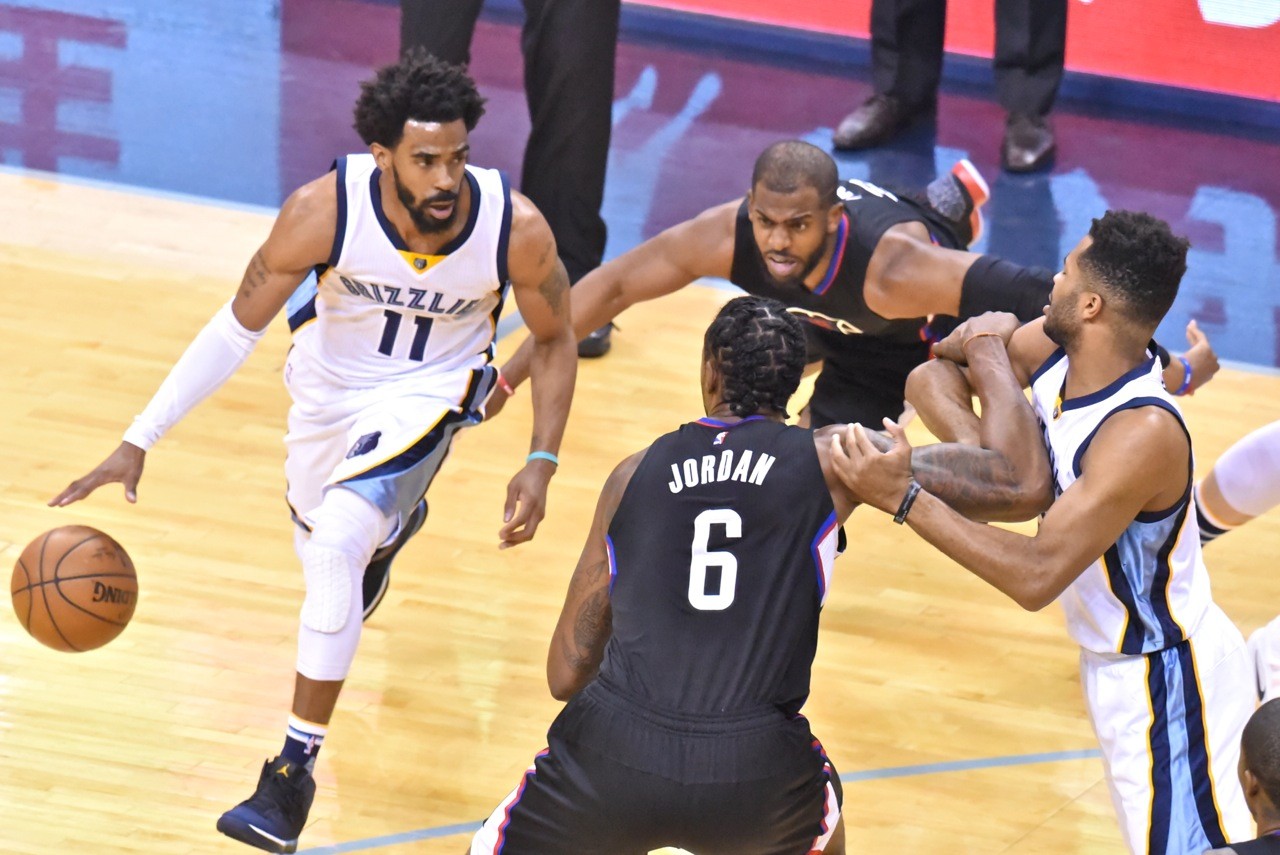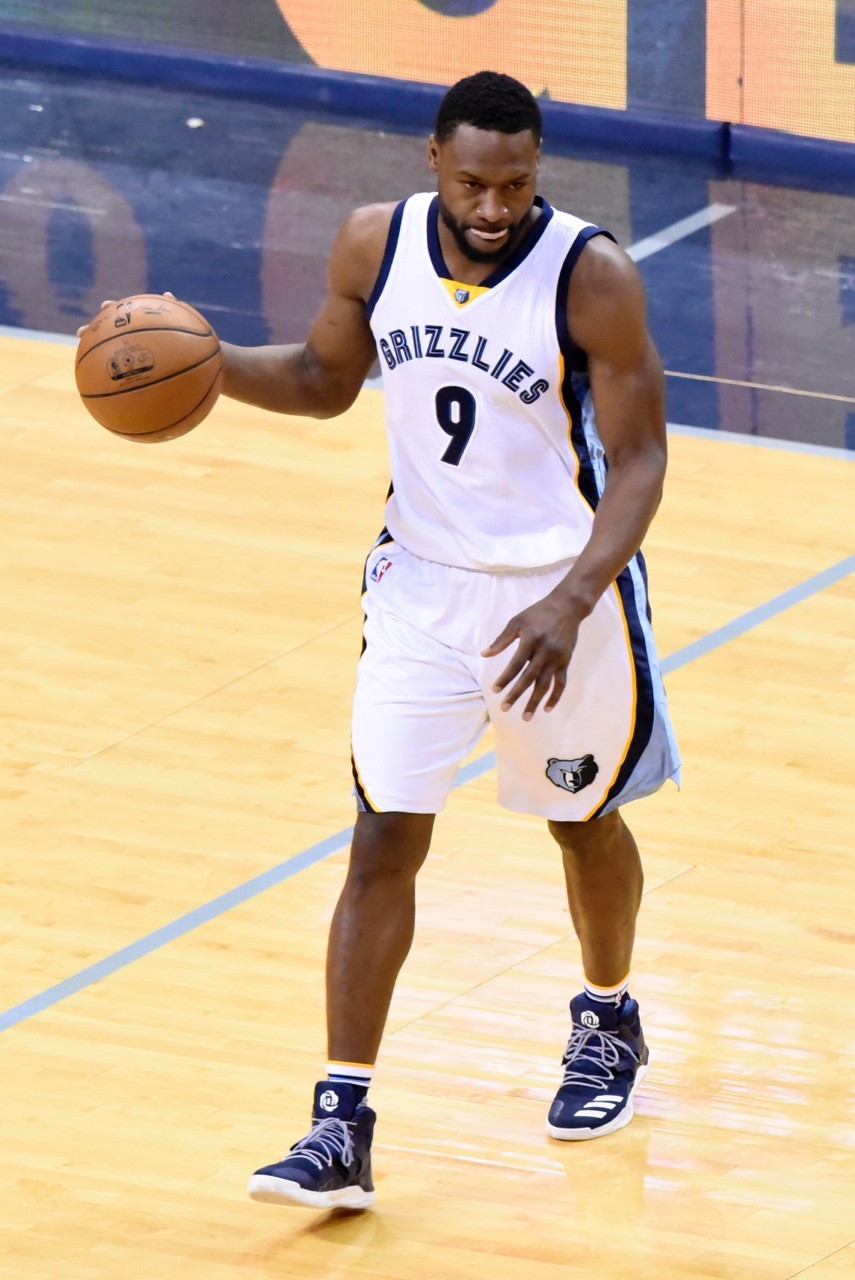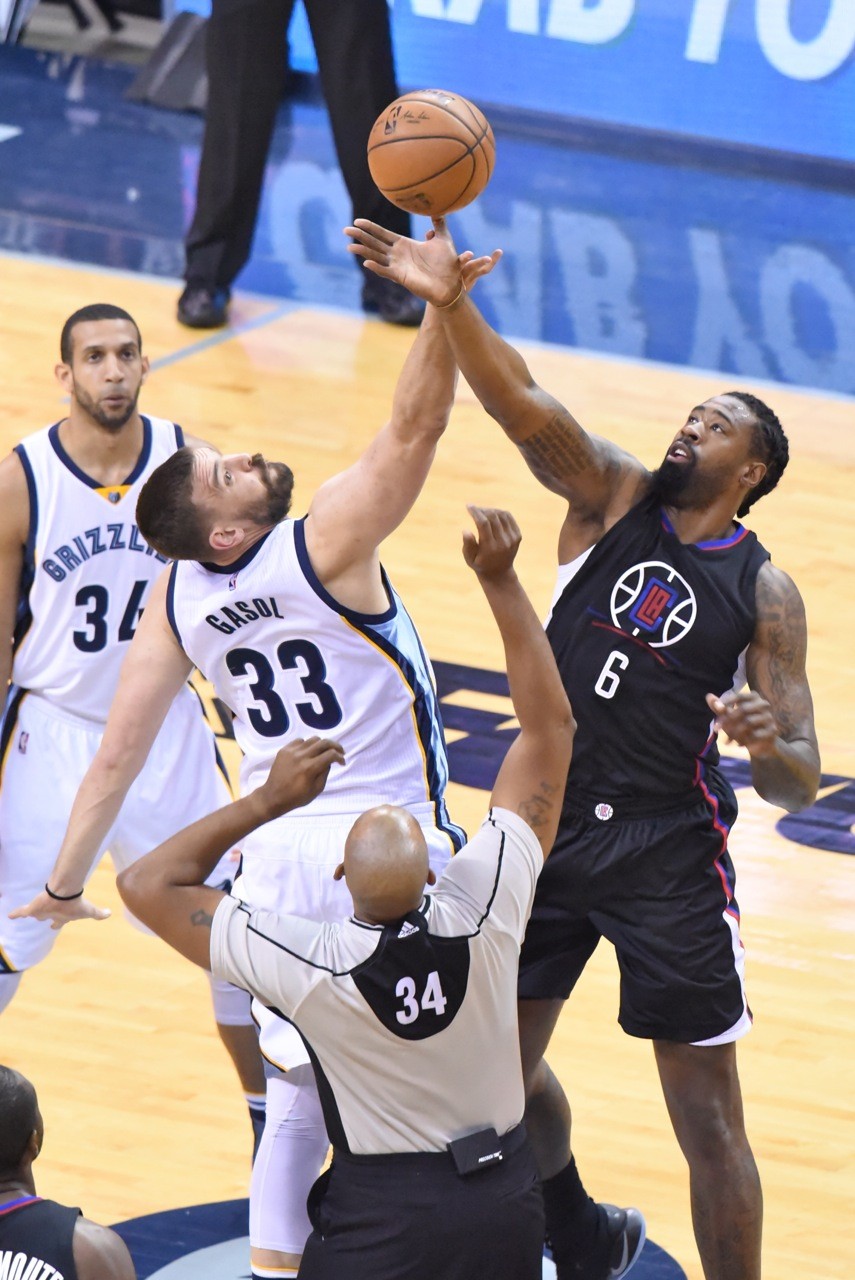 Larry Kuzniewski
Larry Kuzniewski
The Grizzlies played like nothing was at stake last night, and they weren’t wrong.
It wasn’t even that they lost by 16 points, or that they trailed by 20 most of the 4th quarter. It wasn’t that Mike Conley played a heavy minute load again and shot 3–14 from the field. It wasn’t that Toney Douglas ended up –12 in 12 minutes, further cementing my opinion that hanging on to him as the permanent backup point guard was a huge miscalculation. The most frustrating thing about last night was the inevitability of it all, the lack of any doubt from about 15 minutes in that the Grizzlies were going to lose. From there on out, it was all theater, going through the motions and even finding a way to do that poorly.
The fans are getting restless, as they usually do this time of year, with the Grizzlies limping home like a battered race car—except this year there’s no wreck, no slide of catastrophic injuries (barring the one to Chandler Parsons a year ago).
I grew up watching NASCAR. I loved Richard Petty, and Dale Earnhardt, and Davey Allison, and knew the names of every last driver on the Winston Cup series. I had NASCAR sheets and a NASCAR bedspread and a NASCAR lunchbox. I’ve been to all kinds of races—stock cars, drag races, sprint cars, even our next door neighbor racing his Pinto mini-stock on the dirt track in Millington. It strikes me, now that I’ve made that metaphor, that the Grizzlies are missing something that gives auto racing its tinge of fear: in a race car, you can win, but you can also die. It’s even conceivable that you could win and still die. There’s a real penalty for a lack of focus, because even if don’t get killed, you still might run your Pinto into a guardrail doing fifty miles an hour. But what happens if the Grizzlies don’t pay attention, or don’t stay focused? They lose a game? They lose some leverage in the race for playoff seeding?
I’m not saying the Grizzlies should play like their lives are on the line—they’re not. Basketball’s a different animal, one that doesn’t depend in part on all of its participants having a little bit of a death wish. But what’s really at stake for these guys? Haven’t they been here before, and don’t they know how it goes? They can give a 75% effort and be the 6 or the 7 seed, or they can give 100% of their bodies every night and be… fifth. They still don’t have the offensive weapon they needed to get over “the edge” (which is a nebulous concept at best) because it’s March and he still can’t move. That hope for this year is mostly gone, but for the thinnest strands of optimism stretched almost to their limits. The wing rotation is mediocre at best. They decided to keep Toney Douglas for the year even though he wasn’t really better than Andrew Harrison (not to say that Harrison was a suitable backup either) and now Mike Conley has to play 40 minutes a night. The starting lineup has changed late in the season again.
 Larry Kuzniewski
Larry Kuzniewski
Tony Allen has not been the fearsome lockdown defender he used to be.
They’ve done all of this before, and still made it to the first or second round of the playoffs, and still gotten to say the season was a success but not really, and wonder what they’re going to do next year. They’ve done this every single year since their 2011 miracle run. Every year. Only now they can’t just do what they’ve always done, which is reluctantly double down on “Core Four” and bang everything through the post while Tony Allen stalks the perimeter like an uncontrollable chaos magician.
The simple truth is that there is no Core Four anymore. There’s a Core Two: Conley and Gasol, or maybe more accurately Gasol and Conley. Everything else is peripheral, even Zach Randolph, even as essential as he’s been to the Grizzlies’ scoring this year. The league figured out the Core Four Grizzlies two years ago, even as they challenged the eventual champions more than any other opponent. A quick skip pass to the weak side for a wide open three is all it took (something the Spurs figured out in 2013, but no one else thought to copy until a couple years later), and doubling Randolph from the baseline so he couldn’t score meant a team without any shooters had no other option.
All of this is to explain the jam the Grizzlies are in. They bought into Fizdale’s offensive and defensive changes at the beginning of the year, almost immediately. They bought in to Chandler Parsons as the third best player on the team, a dynamic playmaker who could open up the floor for Conley and Gasol like no one before. Randolph, though he protested publicly and privately, decided to just come off the bench and put up 20–10’s, and they seemed like they’d be able to cover for his defense.
 Larry Kuzniewski
Larry Kuzniewski
The Grizzlies have finally realized that none of that actually improved their situation. They never seemed totally comfortable with the defense. The offense can only thrive so long on Conley/Gasol pick and roll before Parsons’ diminished state and the various limitations of all of the other wing options put it right back in the Tony/Tayshaun days, unable to generate enough scoring to justify its existence. They’re headed towards two home playoff games, or maybe five. They clearly don’t expect themselves to go farther than that—even as their coach harangues them in the media for lowering their expectations.
Beyond that, Fizdale has made it to March without having a solid grip on who his ten best players are. The lineups are in constant flux, and after a flirtation with youth he’s relying on veterans just like his predecessor. Not to say that the young guys have earned the right to play more (other than James Ennis, who played terribly in his start last night, his shot to prove that he was unfairly benched).
None of it is going anywhere. It’ll be exciting, sure, and if the catch the right breaks—say, a first-round series against Utah or the Clippers and a second-round series against a Warriors team without a functional Durant—they very well could make the Conference Finals again. But they’re still dependent on breaks, still unable to say anything other than “we tried our best” even if they get swept by an obviously superior team in the first round.
And so what? Are they supposed to go out every night and drive like they might die if they don’t watch every turn, every bumper, every foot of dirt passing under them? You can hardly blame them for not playing like their lives depend on it, but the inevitability of the whole thing doesn’t make it go down easier. You could tell fifteen minutes into last night’s game that the Grizzlies weren’t going to win—and so could they. The guardrail still hurts when you hit it.